Scottish Labour conference 2015: Kezia is trying to tell us something
- Published
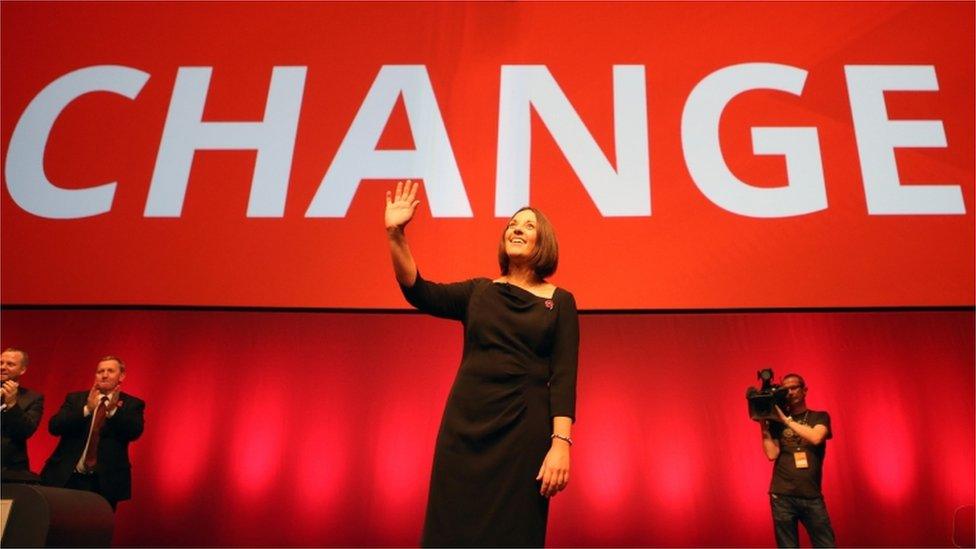
Kezia Dugdale arrived on stage with the single word "Change" projected in gigantic letters
Conference podium messages are intriguing things. Generally they are platitudinous: moving forward, striding ahead, standing for Scotland, that sort of thing.
Mostly, they are discreet little logos, strapped onto the rostrum.
Labour's version of that is an appeal to take a fresh look at the party, presumably in the expectation that this will project a different vision onto the nation's collective retina than that which was generated at the UK general election.
But, for Kezia Dugdale's keynote address, it was evidently decided that subliminal messaging is insufficient.
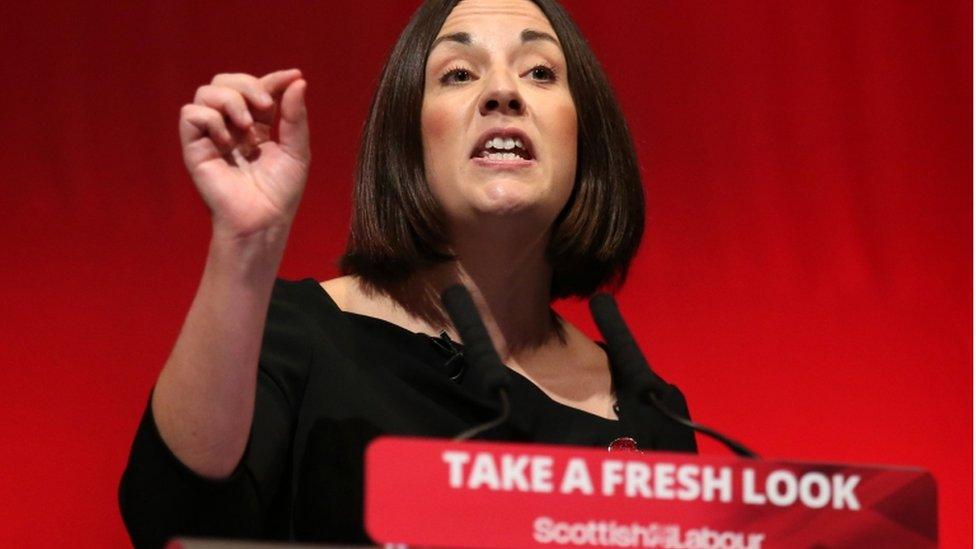
The change Kezia wants? She'd like people to vote for her party
She arrived on stage with the single word "Change" projected in gigantic letters above her on a strident crimson screen.
I think she was trying to tell us something.
And what is the change she is seeking to effect?
It is this. She would prefer, on balance, all things considered, that more folk vote for her party. Taking account of every factor, she would rather avoid another gubbing.
New narrative
Her speech was an intriguing balance of passion and control, delivered mostly without rhetorical devices and in a style which suggested sorrow at Scotland's - and Labour's - plight rather than fury.
For example, there was relatively little in the way of lampooning her opponents in the SNP.
The only obvious example of this was aimed at Alex Salmond rather than Nicola Sturgeon or John Swinney: a calculation, evidently, that voters want to hear a new narrative from Labour, not old insults.
But still the SNP were the targets of her content, if not on this occasion her invective.
Her entire speech was predicated upon the simple fact: that the SNP are riding high in Scottish politics and will be notably difficult to dislodge.
Equally, it was predicated upon a presumption that the Scotland Bill, presently before Westminster, will be enacted, will be endorsed by Holyrood and will be implemented.
It is not that Labour has given up on attempting to amend the bill - far from it. Rather, their narrative demands that they get on to picking fights over what might be done with the new tax and benefit powers which will come Holyrood's way.
So Ms Dugdale is not positing a debate around the 10p income tax power which arrives in Holyrood next April, courtesy of the Scotland Act 2012 and the Calman Commission. Rather she jumps to the Act which should emerge from the post-referendum Smith Commission.
Tax credits
Labour's story - shared with other pro-Union parties - is that it is time for Holyrood to shelve constitutional debate and to move on to political argument over the new powers.
Hence the offer from Ms Dugdale to restore for Scotland any cuts in tax credits which eventually emerge from George Osborne's rethink.
This would be paid for, she says, by shelving the SNP's proposed reduction in Air Passenger Duty (again a Smith power) and sidestepping the Chancellor's proposal to increase the point at which folk move into upper rate tax (once more Smith, power over rates and bands.)
I challenged Labour at conference on a number of points.
For example, where are the ideas to boost the economy to fund public services.
Like Jeremy Corbyn before her, she made minimal reference to economic growth: her tax message being that middle and upper earners in Scotland should be prepared to pay more than in England.
To which Labour replies that Scottish taxpayers will not pay more than they do at present - just more, eventually, than their English counterparts.
They argue further that enhancing educational opportunity is the route to stimulating the economy.
- Published30 October 2015
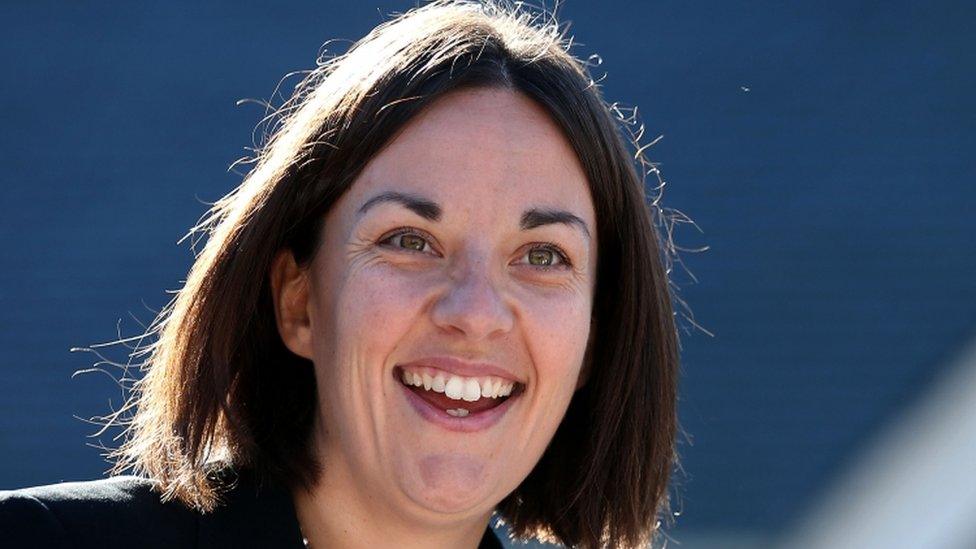
- Published30 October 2015
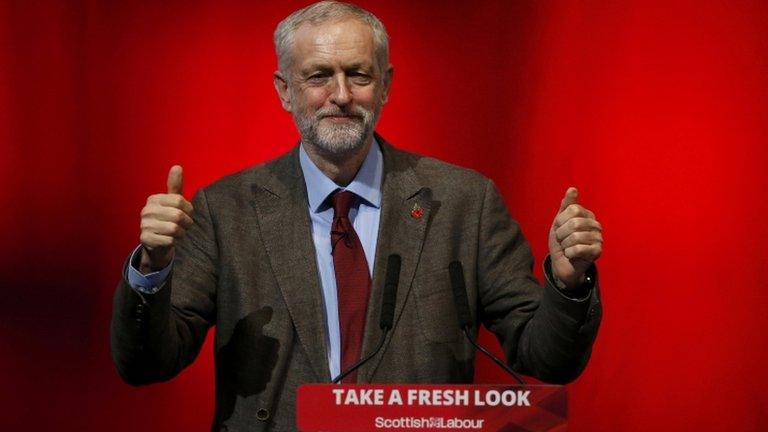
- Published30 October 2015
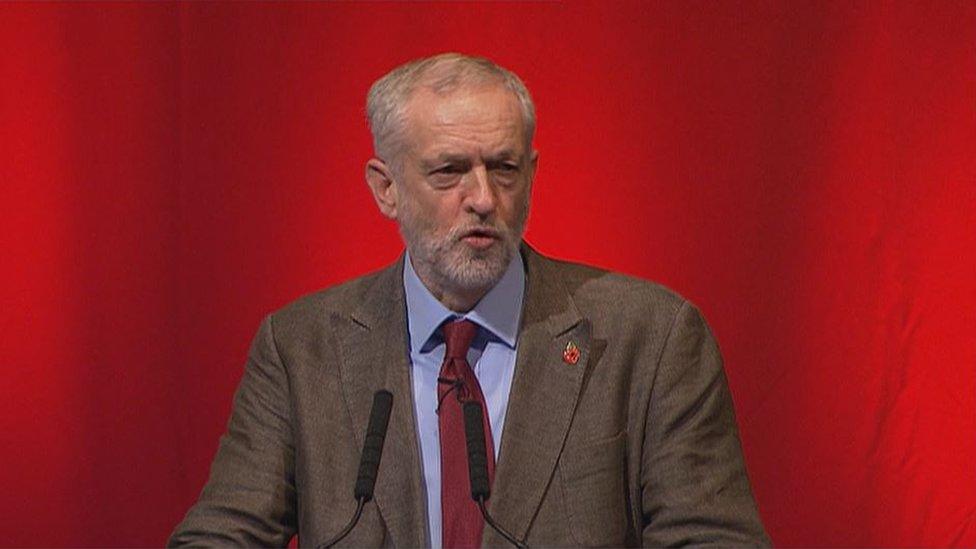
- Published30 October 2015
